Go back
Why I’m optimistic about the Open Access movement
29/10/2021
– The following post was originally published on LinkedIn on October 25, 2021 –
It’s International Open Access Week and I’m taking a moment to step back and reflect on the Open Access movement. The call for Open Access publishing—scholarly research that is freely available, accessible, and reusable—has been around for more than 30 years. However, the last year-and-a-half provided an unprecedented case study on the power of Open Access and there are several learnings I hope we take forward and never forget.
First, the nearly immediate open sequencing of COVID-19 led to the rapid development of vaccines, saving millions of lives. Common barriers that researchers traditionally face—including paywalls, closed data, time lags, etc.—were snubbed and the open sharing of data and information led to increased collaboration and the expedited development of effective vaccines. In an exceptional way, we saw behavior change happen seemingly overnight as researchers and scientists around the globe shared early data and results, openly collaborated, and prioritized public health over prestige and personal gain.
Secondly, we saw the impact of restricted access to library and educational materials. Since libraries and educational institutions were closed or inaccessible, researchers—quarantined at home—encountered paywalls and limited access to information, forcing them to question the necessity and purpose of paywalls in an unmatched way. It has become harder and harder to argue that the current system is working well.
Third, my colleagues, peers, and I were able to attend and speak at workshops, conferences, and other convenings that otherwise would have been inaccessible due to scheduling conflicts, distance, time, or financial constraints. I observed more diversity, new voices, and a broader global representation at these virtual gatherings, which added tremendous value. I strongly hope we’ll continue to prioritize virtual and hybrid convenings moving forward.
At the start of 2021, the Bill & Melinda Gates Foundation updated our Open Access Policy to “enable the unrestricted access and reuse of all peer-reviewed published research funded, in whole or in part, by the foundation, including any underlying data sets.” We took this stance because we believe that free and accessible research expedites innovation, helps solve problems faster, and saves more lives sooner. The past year-and-a-half proved that to be undoubtedly true. And now is the time to push for the acceleration of Open Access to ensure it becomes the norm.
Other recent and exciting developments in the Open Access movement came from cOAlition S, an international group of research funders who are committed to working together to advance Open Access, of which the foundation is a member. In July of 2020, cOAlition S launched the Rights Retention Strategy (RRS) which gives “researchers supported by a cOAlition S organization the freedom to submit manuscripts for publication to their journal of choice, including subscription journals, whilst remaining fully compliant with Plan S.” RRS has sparked more engaged and robust discussions around author rights and what it means to sign away those rights exclusively to publishers during the publishing process. cOAlition S also developed a Journal Checker Tool, which helps researchers easily identify journals or platforms that are compliant with Plan S, a set of 10 guiding principles for the future of Open Access publishing.
There has been so much momentum in the Open Access movement over the last year-and-a-half inside and outside of the work that I’ve been focused on. I’m hopeful that more funders and researchers will continue to feel empowered to embrace Open Access, because as the development of the COVID-19 vaccines has proven, the open and global sharing of research accelerates discoveries, expedites innovation, and saves lives.
Ashley Farley
Over the past decade, Ashley Farley has worked in both academic and public libraries, focusing on digital inclusion and facilitating access to scholarly content. She completed her Masters in Library and Information Sciences through the University of Washington’s Information School. Ashley is Program Officer of Knowledge and Research Services at the Bill and Melinda Gates Foundation. In this capacity, she leads the Foundation’s Open Access Policy’s implementation and associated initiatives. This includes leading the work of Gates Open Research, a transparent and revolutionary publishing platform. Other core activities involve supporting the strategic and operational aspects of the foundation’s library. This work has sparked a passion for open access, believing that freely accessible knowledge has the power to improve and save lives.
View all posts by
Ashley Farley


